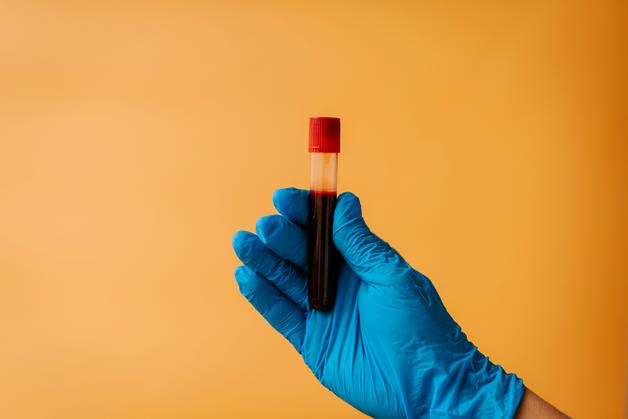Parents often find themselves oscillating between anticipation and uncertainty at the very beginning of a pregnancy journey. The moment you ask yourself, “Is this really happening?” time seems to slow, and the need for concrete answers intensifies. Concerns swirl—Is everything progressing as it should? How soon can I know for sure? What if I miss something important? That’s where blood test pregnancy steps in, offering a scientific lifeline to clarity. Early confirmation, precision in monitoring, vital health screening—all intertwined. Let’s shed light on how this laboratory test spotlights your baby’s first days, uncovers potential complications, and helps you make informed choices with your healthcare provider.
Why Parents Turn to Blood Test Pregnancy
Curiosity about pregnancy is natural. But why opt for a blood test pregnancy instead of the classic urine test? For many, it comes down to sensitivity and timing. Blood test pregnancy works by detecting human chorionic gonadotropin (hCG)—a hormone present shortly after implantation. It can reveal a pregnancy just 8–10 days after conception, sometimes even before you notice any symptoms or miss a period. Imagine that reassurance when you crave certainty in those early days.
But it goes further: a quantitative hCG test discloses the exact concentration of hCG in your blood, not just a yes/no answer. This is a game-changer—think of it as reading the fine print, not just the headline. Want to estimate gestational age? Check for healthy development? Investigate potential issues such as ectopic pregnancy or the subtle warning signs of a threatened miscarriage? The numbers speak volumes, helping your care team interpret the bigger picture.
Timing and Stages: When Is Blood Test Pregnancy Performed?
You might assume blood test pregnancy is only relevant at the start. In reality, these blood draws punctuate the pre- and post-confirmation phases of pregnancy. Early on, the emphasis is clear: confirm the pregnancy, streamline prenatal care, and screen for infections—think toxoplasmosis or rubella—which can impact fetal development.
But the laboratory’s role hardly stops there. As the weeks roll by, blood test pregnancy evolves to check for anemia (low iron can sap your energy and affect baby’s growth), blood group incompatibility (like the all-important Rh factor), and genetic markers linked to conditions such as trisomy 21 (Down syndrome). Each test targets a distinct risk, aligning medical advice with your unique health profile.
Blood Test Pregnancy: Types, Explanations, and What They Measure
Here, clarity matters. Not all blood test pregnancy options look the same:
- Qualitative hCG tests: A straightforward binary response—pregnant or not pregnant. Quick, yes, but doesn’t tell the whole story.
- Quantitative beta hCG blood test (often called serum assay): Picture a thermometer for your hCG levels. How fast are they rising? Are they on target for your pregnancy timeline?
Beyond these, initial screens might include:
- Complete blood count (CBC): Detects anemia or infection—signs your body needs a little extra support.
- Blood typing (Rh factor, ABO compatibility): Determines if you might need preventive treatments to avoid hemolytic disease of the newborn.
- Progesterone testing: Assesses early pregnancy stability.
- Screening for infectious diseases: Including HIV, hepatitis, and syphilis, important for both maternal and baby’s health.
Medical professionals carefully interpret these results—the nuances paint a fuller picture than a simple “positive” or “negative.”
How Is Blood Test Pregnancy Performed? Step-by-Step
Imagining a laboratory or doctor’s office might make your heart beat faster. Rest assured, blood test pregnancy is typically quick and straightforward. A skilled technician draws a small sample from your arm, generally at the elbow crease. Most people describe a moment of discomfort, sometimes a fleeting pinch or pressure, rarely more. Fasting? Not usually needed. Within 24 to 48 hours, results are analyzed and returned to your care provider.
Occasionally, serial testing is required: blood test pregnancy may be repeated every 48–72 hours at the beginning to track the rise of hCG. A healthy, viable pregnancy often shows a robust increase—doubling roughly every two or three days. A slower rise? Medical professionals pay close attention, watching for clues about miscarriage risk or possible ectopic pregnancy.
Ongoing Monitoring: How Blood Test Pregnancy Guides Prenatal Care
Initial results are just the beginning. First trimester? Blood test pregnancy focuses on foundational health: establishing your blood group, checking immunity to rubella or toxoplasmosis, and identifying baseline risks. By the second trimester, new priorities emerge: ruling out anemia, monitoring for gestational diabetes with the glucose tolerance test, or checking for late-developing infections.
Rh compatibility gets special attention: If the mother is Rh negative and the developing baby is Rh positive—an incompatibility could produce antibodies harmful to the fetus. Prevention is provided by Rh immunoglobulin (RhIg/RhoGAM)—a remarkable intervention thanks to advances in blood testing.
Every follow-up blood test pregnancy offers another safeguard—an opportunity to act promptly if new threats emerge.
Blood Test Pregnancy Versus Urine Test: Choosing What Matters Most
Walk into any pharmacy, and you’ll see home urine tests in abundance—simple, practical, usually accurate after a missed period. But their accuracy takes a hit if used too soon. Blood test pregnancy? Its ultrasensitive detection means levels as low as 1–2 mIU/mL are enough for a positive result—sometimes days before a urine test would register a change.
That said, the hospital or lab visit, the cost, and the short wait for results might weigh on your mind. Many parents choose urine tests for a first check, then turn to blood test pregnancy if clarification, early confirmation, or close monitoring of hCG is needed. Especially after fertility treatments or if there’s any history of complication, this next-level tool proves indispensable.
Reading and Interpreting Blood Test Pregnancy Results
Numbers take center stage: During the first weeks, hCG levels are expected to rise, almost doubling every two to three days—a pattern associated with healthy pregnancies. A that rises too slowly or plateaus? That could hint at a miscarriage or ectopic pregnancy, prompting further investigation.
The range is broad—at three weeks, typical values span 5–50 mIU/mL, while by the end of the first trimester, figures in the hundreds of thousands are possible. Interpretations aren’t always clear-cut; context matters.
False negatives arise if the test is done too early, while false positives, though rare, may occur due to fertility drugs, tumors, or recent pregnancies. Always ask questions—your provider translates these numbers with your medical history and treatments in mind.
Broad Medical Benefits of Blood Test Pregnancy
What justifies the routine use of blood test pregnancy? From a medical standpoint, it’s about early, detailed confirmation and real-time risk management. Quantitative measurements support the diagnosis of multiple pregnancies, molar pregnancies (unusual growths that mimic pregnancy), and flag elevated risk when something feels off. Repeated tests can pick up on developing gestational diabetes, changes in iron levels, and more.
Each blood test pregnancy acts as a diagnostic snapshot, offering a proactive route to safeguard both maternal and fetal health. Trends, not just isolated numbers, guide interventions.
Practical Guidance for Parents: Preparation and Peace of Mind
Before submitting your arm, share any medications or fertility treatments with your practitioner, as these can influence the readings. Wondering why those repeat tests are necessary? Every single one helps paint a clearer picture; occasionally, they allow medical teams to intervene early, adjusting iron, monitoring for diabetes, or tailoring care with impressive precision.
Bothered by the repeated pricks or anxious about interpretation? Remember: these steps prioritize wellbeing, not just for you, but for your developing baby. Emotional reactions are entirely valid—communication with your medical team is essential.
Accuracy, Boundaries, and Special Considerations
A word of caution: blood test pregnancy shines when performed at the right moment. Testing too early might disappoint with a false negative. Medications, rare tumors, very recent births, even miscarriage, may tweak hCG readings and lead to ambiguous results. If something doesn’t add up—a mismatch between test and physical symptoms, for example—repeat testing and often an ultrasound close the information loop.
Privacy is paramount: personal data is protected, results are shared strictly on a need-to-know basis, and emotional support is woven throughout the process.
After the Blood Test Pregnancy: What Comes Next?
Positive result—what now? Your provider may suggest another blood test or an ultrasound to confirm and precisely date the pregnancy. Early prenatal visits will encompass health assessment, nutritional advice (like embracing folic acid), and tailored dialogue about any concerns.
Negative but still suspicious? Sometimes it’s just a little too early; a second check after a few days often offers clarity.
Throughout, regular follow-up and open communication create the bedrock of safe and personalized prenatal care. If anything feels amiss—unexpected bleeding, pain, or heightened worry—reaching out promptly allows swift, supportive action.
Myths and Realities: Sorting Fact From Rumor
Several persistent myths color discussions about blood test pregnancy. No, the test cannot spot pregnancy just hours after conception; implantation must occur. Yes, the method is impressively accurate, but not immune to early false negatives or rare false positives. And while quantitative blood tests signal gestational age, ultrasound remains the gold standard for confirming where and how the pregnancy is developing. Both urine and blood test pregnancy have their roles—one quick and practical, the other sensitive and deep-diving.
Key Takeaways
- Blood test pregnancy delivers rapid, highly sensitive confirmation—often days ahead of urine tests.
- Accurate and versatile, these tests adapt throughout pregnancy, helping monitor not only hCG but also anemia, diabetes, and infection risks.
- Quantitative beta hCG is essential for tracking pregnancy dynamics and unmasking issues like ectopic implants or multiple gestations.
- Ongoing laboratory monitoring is a cornerstone for both maternal and child health, promoting swift response if new risks emerge.
- Transparency about your health situation, treatments, and any concerns ensures the most accurate readings and offers reassurance.
- Medical privacy is scrupulously maintained—personal well-being and respect top every priority list.
- Trusted professionals are always available to answer questions and provide comfort as you move forward.
For personal support, tailored tips, and free health questionnaires for your child, consider downloading the Heloa app. Reliable information and peace of mind are just a few taps away.
Questions Parents Ask
Can a blood test detect pregnancy earlier than a urine test?
Absolutely, a blood test is known for its high sensitivity and can usually detect pregnancy sooner than a urine test. Detection is possible about 6 to 8 days after ovulation or conception, which often means you can have confirmation before missing your period. Many parents find this anticipation nerve-wracking, so knowing that blood testing may offer earlier reassurance can bring peace of mind.
What exactly does a blood pregnancy test measure?
A pregnancy blood test focuses on detecting the hormone hCG (human chorionic gonadotropin), produced early in pregnancy. There are two main types: one simply reveals if hCG is present, confirming pregnancy; the other provides a detailed measurement of hCG levels. This can help doctors assess how the pregnancy is progressing, which is especially helpful in the early stages.
When should I consider a blood test for pregnancy?
If you’re looking for an answer as early as possible or if you need precise tracking due to previous fertility treatments or health concerns, a blood test may be the most suitable option. It also serves as a useful tool for those who require confirmation after a borderline urine test result or prior to certain medical procedures. If you ever feel uncertain, don’t hesitate to share your feelings and ask your healthcare provider for the approach that fits best with your needs.

Further reading:









